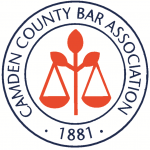What is the NJ Workers Compensation Fraud Act?
The Workers’ Compensation Fraud Act makes it a fourth-degree felony to “purposely or knowingly” make false or misleading claims, representations, or submissions concerning any fact “material” to a workers’ compensation claim for the purposes of wrongfully obtaining benefits. The Act has been in force in New Jersey since 1998.
A “material fact” is any fact that a reasonable person would recognize as relevant to your workers’ compensation case, as distinguished from an insignificant or unimportant detail.
Example Case
For example, in the 2014 case Bellino v. Verizon Wireless, Verizon accused former employee Natalie Bellino of workers’ compensation fraud. Verizon maintained that several of her statements to both her treating and examining conditions were allegedly false, incomplete, or misleading and argued that she did not disclose every medication she’d been taking to each doctor she saw. They also argued that Bellino did not report all prior treatment of her injured back and hand to each doctor and failed to prevent that she had a substance abuse problem in the past or that she’d been taking Suboxone to prevent relapse. They also claimed that she failed to disclose her prior psychiatric treatment and issues fully.
Bellino argued she never purposefully or knowingly provided false or misleading information. She said she tried to answer all doctor questions truthfully but that she’d seen multiple doctors several times and wasn’t always sure of the times or dates of previous treatments. She also disagreed with the characterization of her statements contained in several doctor reports. The judge of compensation agreed that Verizon had failed to prove that she’d purposefully or knowingly made false or misleading statements and stated he believed the medical records already reflected all her pre-existing conditions and medications.
Verizon brought the case to appeal. The appeals court further noted that “the anti-fraud provision is intended to root out fraudulent claims, not merely to test an injured person’s ability to remember every detail of a lengthy medical history or to accurately determine what may be material for purposes of receiving treatment or other benefits.” The appeals court upheld the lower court’s decision.
In general, a failure to remember some previous condition or treatment will not necessarily mean that you are vulnerable to fraud charges, though at times, employers will wish to use those human failings against you. Having a good workers’ compensation lawyer on your side is good protection against these accusations.
Other Examples of Workers’ Compensation Fraud
Examples could include:
- Faking an injury to obtain benefits
- Failing to disclose a pre-existing condition
- Exaggerating the extent of your injuries
Of course, employers commit workers’ compensation fraud as well.
Examples of employer fraud include:
- Misclassifying employees as independent contractors
- Submitting erroneous payroll data
- Failure to purchase workers’ compensation insurance
How WCFA Might Impact Your Case
How might this law impact a legitimate workers’ compensation claim?
- Your claim may receive more scrutiny if your injury occurred late on a Friday or early on a Monday. Statistically, most fraudulent claims occur during this time.
- You should be certain that your telling of the facts of the case is always clear, honest, and consistent. Inconsistent accounts could lead to accusations of workers’ compensation fraud.
- You should follow all of your medical provider’s instructions and assume you are being watched. New Jersey law allows employers to surveil you, and if they find inconsistencies between your stated limitations and your actual activities, you could be accused of fraud.
- Expect your claim to receive more scrutiny if you have a history of financial problems, substance abuse, or criminal activities.
- Expect your claim to receive more scrutiny if you’re not at home during scheduled visits, if you’re difficult to reach, or if you do not return calls.
Each of these scenarios represents a common sign of fraud. They don’t necessarily mean that fraud has occurred, but they can mean a deeper investigation. It may be wise to be ready to seek help from our firm if your specific case facts match any of the scenarios above.
Get Help Today
Employers love to accuse employees of workers’ compensation fraud because it generally means they do not have to pay the claim.
If you’re being accused of fraud, you need immediate help. Contact our office to protect your benefits, reputation, and freedom today.
See also:
What Happens if You’re Accused of Workers’ Compensation Fraud in New Jersey?



